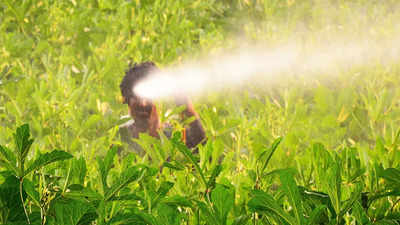
New Delhi/Moscow: The Indian government and industry sources said it is in the first government-to-government talks with Russia for long-term supply of fertilisers, hedging against geopolitical volatility and high global prices.
India is a top importer of urea and other soil nutrients needed to feed its vast agricultural sector, which employs about 60% of the country’s workforce and accounts for 15% of the $2.7 trillion economy.
Government sources said Fertilizer Minister Mansukh Mandaviya will visit Moscow to discuss deals with Russian Trade Minister Denis Manturov at the end of this month or early March with officials of fertilizer companies.
This is the first time in 30 years that the government will engage in multi-year import negotiations for fertilisers. In 1992, India introduced a policy declaring regulation of soil nutrients except urea.
Sources said India is aiming to close one million tonnes of di-ammonium phosphate (DAP) and potash every year; and a mixture of nitrogen, phosphorus, potassium (NPK) about 800,000 tons per year.
A source said, “The pricing and the exact quantity are yet to be finalised. Our focus is on secure supplies at fair prices. Since (Indian) ministers are involved, we are expecting some relaxations.”
Sources said Rashtriya Chemicals & Fertilizers, National Fertilizers, Madras Fertilizers, Fertilizers & Chemicals Travancore and India Potash Ltd are expected to sign 3-year deals for DAP, potash and complex fertilisers with Russian companies.
The companies already have an import deal with Fosagro for 400,000 tonnes of DAP and are expected to lift the entire contracted quantity by June, with the end of the existing export quota set by Moscow.
“We are currently in talks with our Indian partners to expand and develop our existing agreements for the supply of mineral fertilizers to Fosagro,” Fosagro told Reuters. Uralkali declined to comment.
Some states in India faced fertilizer shortages in 2021 after an export ban by China and a record rise in global prices triggered by factors including high energy costs and Western sanctions against Belaruskali, the world’s second-largest potash producer.
India allows companies to fix retail prices of fertilizers. But to ensure that farmers are not affected by the rapid global prices, New Delhi provides subsidies to fertilizer companies to have indirect control over retail prices.
Indian companies and the Ministry of Fertilizers and the Russian Trade Ministry did not respond to Reuters requests for comments.
An executive of a fertilizer company that negotiates overseas deals said his firm is planning to sign an initial deal for long-term supplies from Russia.
He said, “Fertilizer prices are rising in the global market. India is one of the world’s largest importers and Russia is our major supplier. Our endeavor is to protect farmers from price volatility through long-term supply contracts. of.”
FacebookTwitterLinkedinE-mail
,